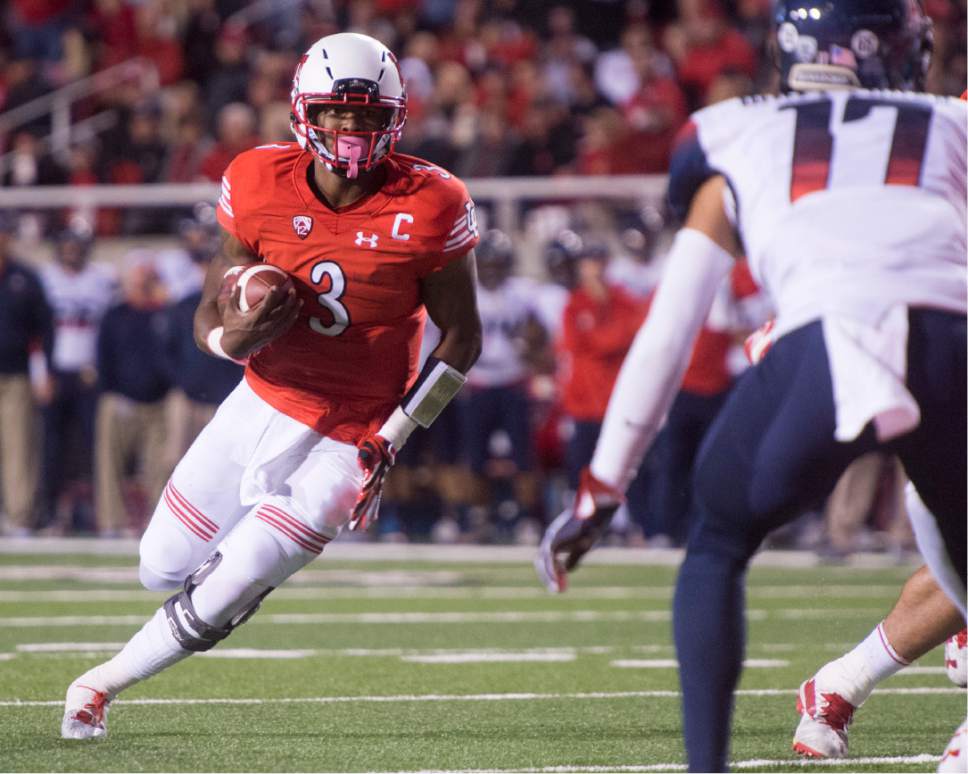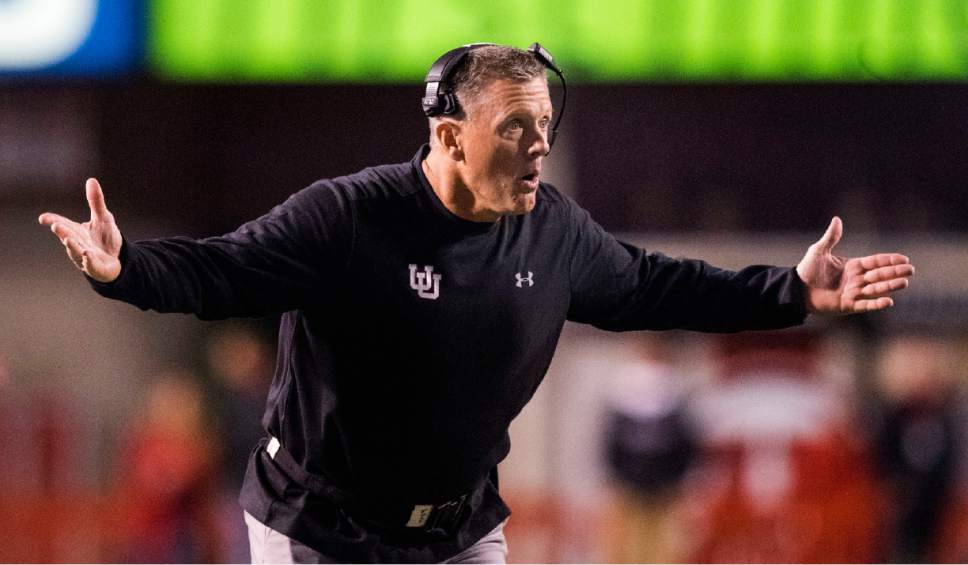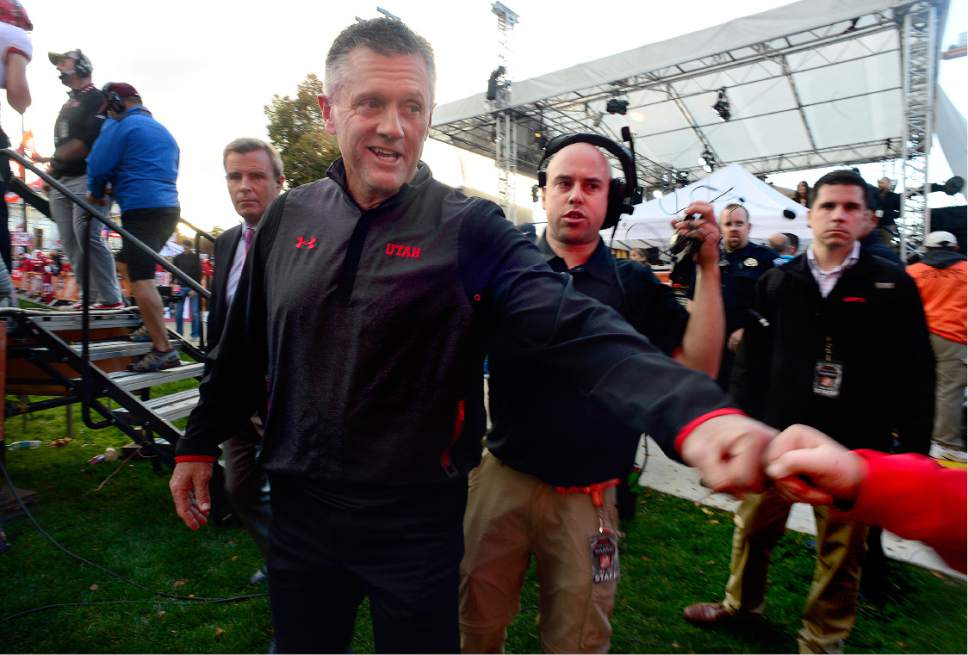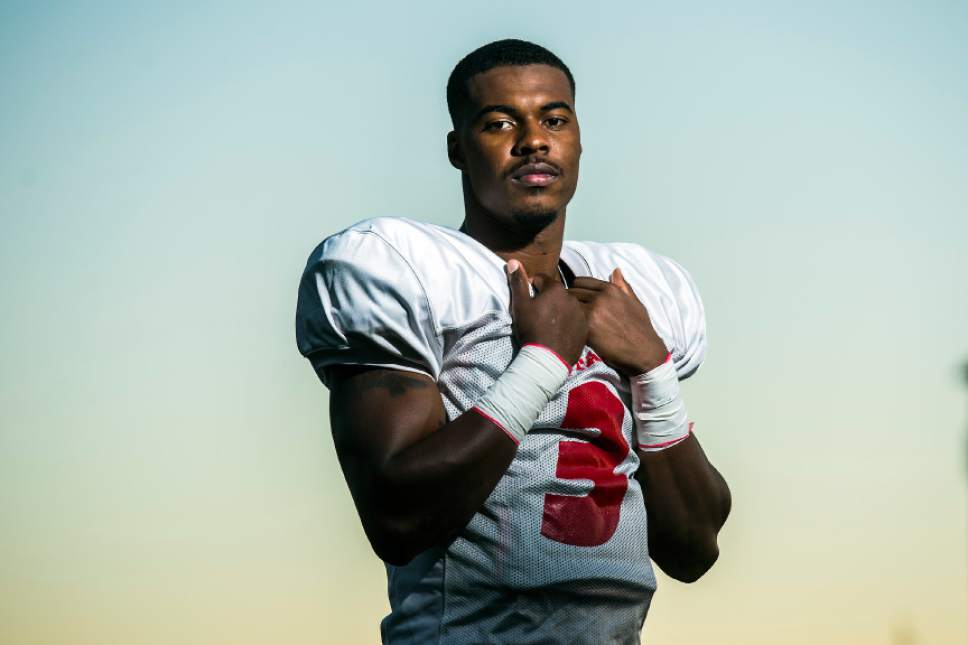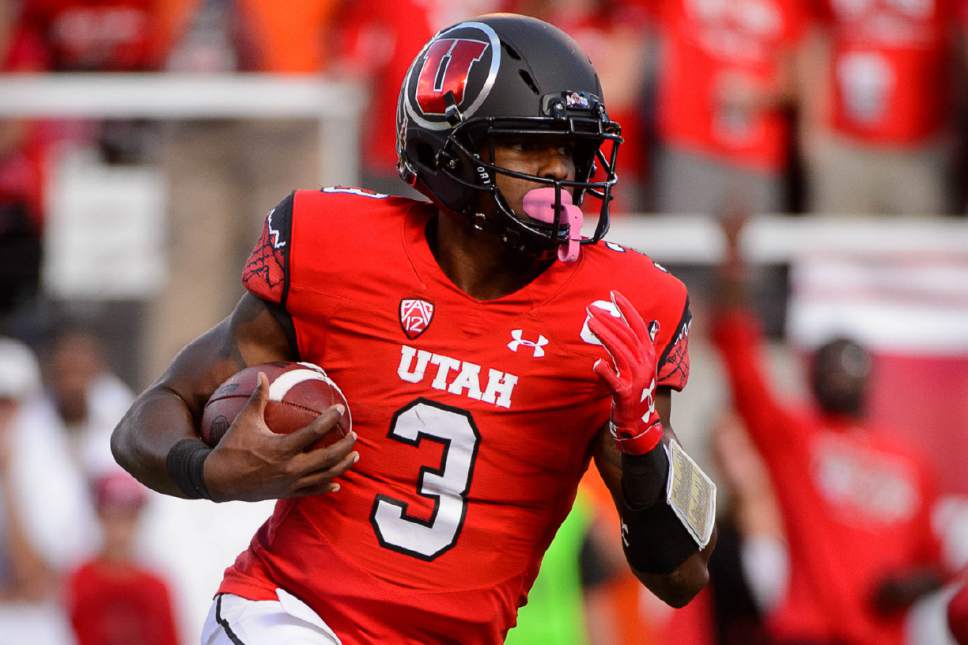This is an archived article that was published on sltrib.com in 2016, and information in the article may be outdated. It is provided only for personal research purposes and may not be reprinted.
Kyle Whittingham was recently asked which of his players reminded him most of himself. His answer might surprise you. He didn't say one of his defensive tackles or one of his linebackers, one of his tough buzzards who like to punish people with physicality. No. He said … his quarterback, Troy Williams.
Williams and Whittingham are wonderful examples of being the same in one way: They kind of like getting punched in the mouth and then punching back even harder. They stand and dare you to hit them with your best shot. And then … well, let's see how it turns out.
They aren't the only leathery guys who share that trait. Jerry Sloan was like that, too. He used to be happier after a loss, when his team was put in a situation where it had to answer back with an improved effort, almost as a right of passage or a means to earning a badge of honor or providing some kind of proof of manhood. In Sloan's mind, that sort of ruggedness defined who players were as competitors.
Whittingham and Williams are similar — and in the case of the quarterback it's reflected in his play.
At the start of the game on Thursday at Arizona State, Whittingham said his team was sleepwalking, "not doing much of anything in any phase of the game."
Led by Williams, the Utes woke up.
It almost seems like they do this whole thing intentionally. It's part of a devious plan to, as Williams said, "get the energy going."
How many times this season have the Utes fallen behind only to fight back to either find victory or, even in defeat, never flinch or fade? Nearly every week.
And often those early deficits — against BYU, against San Jose State, against USC, against Cal, against Arizona, against UCLA, against Washington, against Arizona State — were substantial. They trailed the Trojans and Bears and Huskies by two touchdowns, the Sun Devils by 13 and the Wildcats by 11. And in all of those games they came back to either win or at some juncture take the lead.
It's as though Williams — and maybe his team, as well, keying off of him and his essence — must take those few shots before he responds. He has to get knocked down before he gets back up. He has to feel some pain and disrespect before he demonstrates to an opponent who and what he really is.
It's happened too many times now for this to be some sort of coincidence. It's now part and parcel, the personality of a team that is 8-2 and staring down a Pac-12 South title and a spot in the league's championship game.
When Williams started the game a couple of weeks ago against his former team, a Washington club that had some of his old friends on it, led by a coach who didn't believe in him, he was amped out of his mind. He was flinging the ball hither and thither, chucking it five feet over his receivers' heads, at one point completing just a third of his passes, and then he settled in and started balling.
He fell behind and began again. He began again, much better, throwing two touchdown passes that would have made Cam Newton proud, boring through traffic, spinning into the hands of his targets.
On that day, Williams wasn't good enough to make the complete recovery. But in the postgame, he said it as emphatically as any other Ute: "We hope to see these guys again." He planned on it.
And he does, if only the Utes and Huskies handle their remaining business and earn the right to face off. Again.
Williams' approach not only echoes Whttingham's tough growl at the competitive process, it amplifies the climb Utah football has made through the Pac-12. In the early years, the Utes wilted, although they rarely embarrassed themselves. There was the bracket of 5-7 years, back when Utah struggled to get over .500 in conference play, struggled to win on the road.
It got popped in the forehead, going 4-5 in 2011, 3-6 in 2012, 2-7 in 2013, and then the rebound began. It was 5-4 in 2014, 6-3 in 2015, and now the Utes stand at 5-2 with two regular-season games to play.
In past seasons, Utah didn't have the versatility it displayed in handling Arizona State, a game during which it switched up from its standard running attack and righteously put the ball in the air, bouncing back from that 13-zip deficit by way of a 64-yard touchdown pass from Williams, a 27-yard TD pass from Williams, a 17-yard TD pass from Williams and a 24-yard TD pass from Williams.
"He started slow like the rest of us, but then went lights out," running back Joe Williams said of quarterback Troy.
Lights out for the Devils.
Troy Williams put it like this: "My confidence has always been high, but after [the first TD pass] it went through the roof. I was able to go out after that and have fun."
It's always fun pummeling the guys who minutes earlier were pummeling you. So much fun, Williams can't rearrange the pattern. He added: "We all want to get to the Pac-12 championship," and he said: "It feels great. We are on a mission, and you can see that on our faces and in our play. We had a slow start [Thursday], but we have a mission to get us back on track."
Which is to say, they play dead for a while, then they kill the other guys. It's college football's version of rope-a-dope.
Some believe doing that is dangerous, bound eventually to knock the Utes down and out, leaving them unable to fight back, especially against, say, Colorado at Boulder or, if they get the rematch, against Washington.
But that's not included in Williams' mission statement.
He wants to get hit. Go ahead and smack him. He'll take it from there.
GORDON MONSON hosts "The Big Show" with Spence Checketts weekdays from 3-7 p.m. on the Zone Sports Network, 97.5 FM and 1280 AM. Twitter: @GordonMonson.


